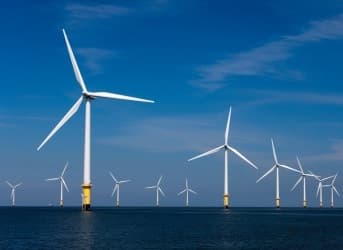A referendum on whether Scotland should be an independent country and leave the United Kingdom will be held 18 September 2014, with a straight Yes/No question: "Should Scotland be an independent country?" Pressing for independence is the Scottish National Party, which won an overall majority in the devolved parliament elections in May 2011.
The latest study by polling firm YouGov found 53 percent of those surveyed wanted Scotland to continue as part of the UK.
Given the high stakes, London is issuing dark, apocalyptic pronouncements about Scotland’s future should its electorate vote for independence. One concept that is being hammered home is that Edinburgh should not regard North Sea oil as a cash cow underwriting an independent Scotland’s economy. British Energy Secretary Ed Davey, in commenting upon Sir Ian Wood's review into stemming steep declines in North Sea output warned that Scotland could not rely on stable tax revenues from the region, commenting that the need for the review should "show the people of Scotland... the vulnerability of an independent Scotland being over-dependent on one industry and on one source of tax revenue. We saw (North Sea) tax revenue fall in one year, 2012-2013, by 40 per cent. We saw production of oil and gas over three years fall by 40 per cent. This is a mature basin. We hope with implementing the Wood review there’s a very positive future for the oil and gas industry, we really want to see that. But with the volatility of oil prices and the declines we have seen, it should sound a note of caution: if we think that there is this money tree of the oil and gas industry which will fund independence, that simply is not true.”
Related Article: It’s Scotland’s Oil – and it Will Need a Lot of Investment
Scotland’s First Minister and SNP leader Alex Salmond has insisted that Scotland would not be reliant on the North Sea, describing it as "not the basis of the Scottish economy" but "a marvelous bonus" and suggested the setting up of a Scottish oil fund.
One element of the SNP’s policy is a dedication to increasing Scotland’s use of renewable energy. A 2012 poll by YouGov for Scottish Renewables showed as many as 72 percent of the people polled in Scotland back wind power. SNP Scottish Parliament member for Caithness, Sutherland and Ross Rob Gibson commented, “The message from the people of Scotland is loud and clear – wind power is key in the future of our energy policy. In fact, when you take this poll into account with last week’s Ipsos Mori poll for RenewablesUK, the message from people across the UK is exactly the same – wind power is the way forward. It is encouraging to see as many as 72 percent of people polled in Scotland support wind power development as part of a mix of renewables and conventional forms of electricity. Scotland has vast renewables resources – demonstrated by the fact we produce a quarter of Europe’s tidal and offshore wind power and 10 percent of its wave power.”
Related Article: Will the U.S. Follow the U.K. Into Power Shortages?
Another element in the SNP’s energy matrix is hydroelectric power. The Scottish Government has also approved 20 smaller conventional hydro projects, meaning that hydroelectricity could account for a third of Scotland’s generating capacity within ten years, a development that Salmond said could rival the “revolution in the glens,” which saw electricity brought to the Highlands in the 1950s.
Renewable environmental correctness aside, whatever the future holds for Scotland, the current reality is that according to official figures, Scottish households currently have the highest energy costs in Britain, exceeded only by Northern Ireland. According to the Office for National Statistics report, “Household Energy Spending in the UK 2002-2012,” “Considering the average household energy spend across the countries of the UK from 2010 to 2012, households in Northern Ireland were spending £154 a month on energy (in 2012 prices). This was £42 higher than in Scotland, £49 higher than in Wales and £51 higher than in England. UK households spent an average of £106 a month on household energy in 2012. This was a 55 percent rise on the 2002 monthly spend, after accounting for inflation. This is despite a decline in average energy usage.”
Perhaps it’s the weather, but according to Britain’s Department of Energy and Climate Change, Scotland has the second highest energy consumption per thousand of population of any British region or nation, 18 percent higher than the British average.
ADVERTISEMENT
So, whatever the outcome of the upcoming referendum, it would seem that Scotland’s citizens will not get any immediate relief from high energy costs, even if the country under the SNP continues to go green.
By John Daly of Oilprice.com


















